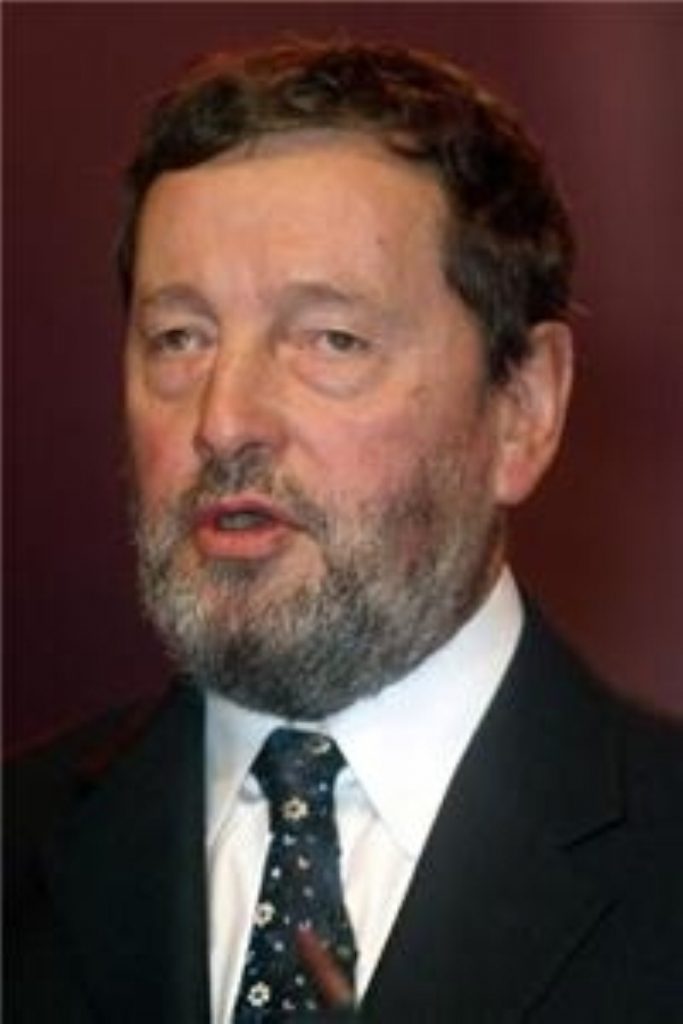Blunkett seeks to increase police accountability
Home Secretary David Blunkett is to unveil proposals later today to render the police service more accountable to the public.
He is keen to raise the profile of chief police officers within their communities, and is considering US-style reforms to increase awareness about how the criminal justice system works at the local level.
Mr Blunkett is also interested in considering the partial election of officials to high-ranking bodies such as police authorities.
He has played down talk of the creation of directly-elected district attorneys in the manner of the United States.


But he has confirmed that the UK attorney general Lord Goldsmith is currently looking at ways to boost the profile and widen the role of local senior public prosecutors “so that they command the sort of standing they do in the US”.
Similarly, measures to raise the profile of Crown Prosecution Service at the local level are to be considered, as well as the possibility of changing its name.
Delivering the Edith Kahn Memorial Lecture to the Community Service Volunteers (CSV) this evening, the Home Secretary will remark: ‘How we work with communities to renew themselves and improve local services must be fundamental to the next stage of the Government’s reform agenda.
‘Our aim should be nothing less than a society in which individuals and their families are empowered, enabled and supported by Government to take part as active citizens in shaping what happens in their community, and to lead self-determined, fulfilling lives.
One of the strengths of the police service in this country is its commitment to deliver a public service through working with communities, the Home Secretary will say.
Yet despite their highly visible role in society and communities, early findings from research conducted by the Home Office working with the
Association of Police Authorities (APA) showed the public had little understanding of exactly how the police were accountable, according to Mr Blunkett.
‘I am calling on the police, police authorities, Crime and Disorder Reduction Partnerships and others who care about policing in this country to join in the debate on how past good work can be built on to clarify and strengthen community involvement and accountability. It is difficult to engage and reassure people if they do not know who they are being policed by and how to have their say.’
Among the Home Secretary’s proposals are: the wider dissemination of meaningful performance data; more work to promote and better use the services of community and voluntary groups involved in crime reduction work, such as Neighbourhood Watch, Victim Support, tenants organisations and development trusts; and increasing the visibility locally of police leaders and others responsible for tackling crime and disorder.
Responding to Mr Blunkett’s concerns, the president of the Police Superintendents’ Association accepted the need for police services to engage more closely with the communities they serve.
However, Kevin Morris expressed caution at suggestions that local policing should shift towards the US model.
‘The problem we have had recently is that despite falling crime figures, the public just don’t believe that the streets are safer, so we need to engage with our communities more and make sure that they are reassured rather than just seeing a load of statistics’, he told Sky News today.
But insisting that the US constitution was ‘quite different’ in the respect that central government did not interfere in local matters, Mr Morris remarked: ‘I honestly cannot see the (UK) government giving up the control they have (in order) to give more control to the local people, so while they may want some of these things, I think they need to be very careful about how they bring them in’.
And pointing to what he described as a conspicuous lack of communication in the United States between police forces, he added: ‘We have learnt a lot of hard lessons over the years, and it would be a shame as it were to throw out the baby with the bathwater’.

